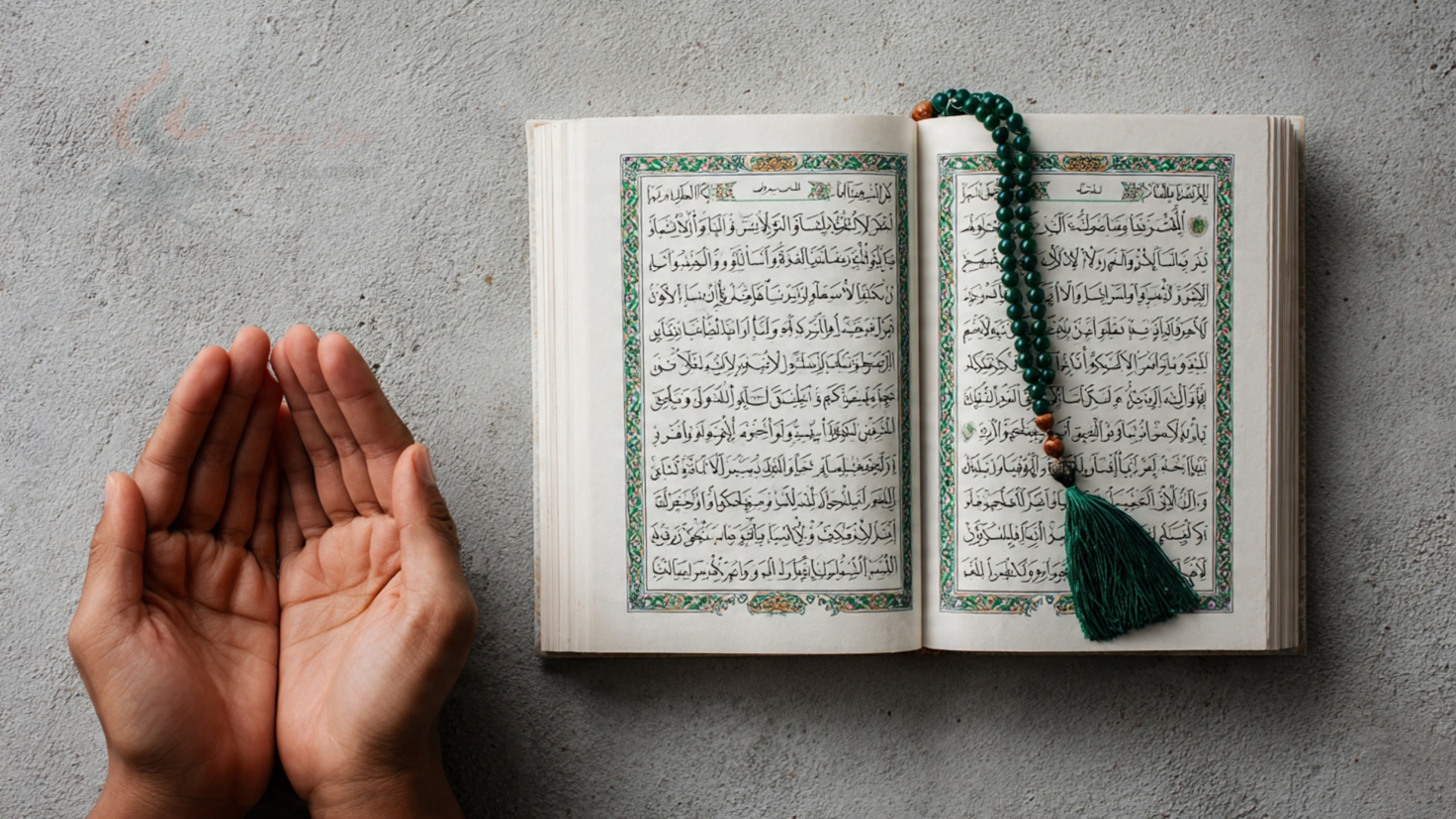Surah Al-Muddathir, the 74th chapter of the Quran, holds deep spiritual meaning. It was revealed in Makkah during the early days of the Prophet Muhammad’s (peace be upon him) mission. The term “Muddathir” translates to “The One Wrapped Up,” referring to the Prophet as he was addressed by Allah. This chapter emphasizes moral purification, unwavering faith, and the urgency of spreading Allah’s message.
Scholars and analysts highlight its importance in understanding the early call to Islam and the responsibility of delivering Allah’s guidance. This Surah focuses on themes like accountability, the Day of Judgment, and true monotheism. Studies have underscored its relevance in promoting individual and communal ethical values. Researchers also admire how its verses address human nature and divine justice with clarity and depth.
Imagine receiving a life-altering command while wrapped in solitude. Surah Al-Muddathir ignites that imagery, pulling readers into reflection. Its verses challenge hearts and minds, urging action and spiritual growth. The message of this Surah continues to inspire, reminding us to rise, warn, and strive for a meaningful life anchored in faith. This blog post explores the Surah’s key aspects in detail, providing an analysis of its verses and a reflection on its contemporary relevance.
What is Surah Al-Muddathir?
Name and Meaning
The term “Muddathir” translates to “The One Wrapped Up.” This name refers to the Prophet Muhammad (peace be upon him) as described in the first verse, where he is addressed by Allah while wrapped in his cloak.
Context of Revelation
Surah Al-Muddathir was revealed in Makkah, making it one of the earliest revelations. These verses came after the initial command to “Read” (Surah Al-Alaq). They served as a directive, instructing the Prophet Muhammad (peace be upon him) to rise, warn, and fulfill his prophetic mission with conviction. The urgency in Allah’s commands highlights the importance of delivering the message to humanity without delay.
Historical Significance
The Surah signified the Prophet’s transition from contemplation to action. It warned about the consequences of disbelief, directed him to persevere in his mission, and emphasized the need for spiritual purity. These themes not only guided the Prophet but also set the tone for the early Islamic community, urging them to commit to truth and justice.

Verse-by-Verse Analysis of Surah Al-Muddathir
Verses 1-7
“OH, you’re wrapped in garments! Arise and warn! And magnify your Lord! And purify your garments!
This opening section calls upon the Prophet Muhammad (peace be upon him) to take responsibility for his mission. The command “Arise and warn” focuses on his critical duty to deliver Allah’s message. Purification (“purify your garments”) represents inner and outer refinement, while Allah’s exhortation to avoid idols (Rujz) emphasizes monotheism as central to faith. Patience becomes essential as the Prophet prepares to face rejection and hostility.
Verses 8-10
“Then, when the Trumpet is sounded. Truly, that Day will be a Hard Day. Far from easy for the disbelievers.”
These verses introduce eschatological themes, underscoring the terror of the Day of Judgment. The blowing of the Trumpet signifies the commencement of reckoning, a day marked by unparalleled difficulty for those who deny truth and indulge in sin.
Verses 11-13
“Leave me alone with whom I created lonely, and then granted him resources in abundance. And children are always present by his side. And made life smooth and comfortable for him.”
Here, Allah shifts focus to the disbelievers, specifically highlighting those who reject His blessings. The verses convey Allah’s authority and warn against arrogance. Wealth, family, and comforts—if misused—become reasons for spiritual downfall.
Verses 14-15
“Yet he is hungry for more. Nay! Verily, he has been opposing Our Ayat.”
These lines critique human greed and ingratitude. Despite receiving blessings, many crave additional worldly gains, neglecting spirituality and ignoring divine signs (Ayat).
Verses 16-26
“I shall force him to Saqar. Verily, he thought and plotted. Then he frowned and scowled. Then he turned back and acted arrogantly … I will cast him into Saqar (Hellfire).”
Allah describes the punishment of a prominent disbeliever who plotted against the Prophet. The detailed narrative alludes to Al-Walid bin Al-Mughirah. His disbelief and scheming against the Quran led to eternal torment in Saqar, one of the names of Hell.
Verses 27-30
“And what will make you know what Saqar is? It does not spare nor leave. Scorching for the humans! Over it are nineteen (angels as guardians).”
The vivid description of Hell elucidates its severity, embedding in readers a sense of awe and fear. The mention of 19 angels reiterates divine power and the impossibility of worldly escape.
Verses 31-37
“We have only appointed angels as guardians of the Fire … And this (Quran) is only a reminder to mankind.”
Now, the discourse addresses believers and People of the Book. The numerical mention of Hell’s guardians tests sincerity, increasing faith among believers while leading disbelievers into further denial. The Quran serves as guidance, but human free will determines acceptance or rejection.
Verses 38-45
“Every soul will be detained for what it has done. Except the people of the right … They will say, ‘We were not of those who used to offer Salah.'”
These verses highlight personal accountability. Those who fail to fulfill basic obligations like prayer and charity face dire consequences. Engaging in lies with false speakers and denying resurrection are further reasons cited for punishment.
Verses 49-56
“Then what is wrong with them that they turn away from admonition? Nay, verily, this is an admonition. And they will not receive admonition unless Allah wills.”
The Surah concludes by questioning the disbelievers’ irrational rejection of divine reminders. It asserts that guidance ultimately depends on Allah’s will. However, human beings bear responsibility for seeking the truth actively.
Surah Al-Muddathir Transliteration, English & Urdu Translation
بِسۡمِ ٱللَّهِ ٱلرَّحۡمَٰنِ ٱلرَّحِيمِ
Bismillah hir rahman nir raheem
اللہ کے نام سے شروع جو نہایت مہربان ، رحمت والاہے ۔
In the name of Allah, the Entirely Merciful, the Especially Merciful.
يَـٰٓأَيُّهَا ٱلۡمُدَّثِّرُ
Yaaa ayyuhal muddassir
اے چادر اوڑھنے والے ۔
O you who covers himself [with a garment],
قُمۡ فَأَنذِرۡ
Qum fa anzir
کھڑے ہوجاؤ پھر ڈر سناؤ۔
Arise and warn
وَرَبَّكَ فَكَبِّرۡ
Wa rabbaka fakabbir
اور اپنے رب ہی کی بڑائی بیان کرو۔
And your Lord glorify
وَثِيَابَكَ فَطَهِّرۡ
Wa siyaabaka fatahhir
اور اپنے کپڑے پاک رکھو۔
And your clothing purify
وَٱلرُّجۡزَ فَٱهۡجُرۡ
Warrujza fahjur
اور گندگی سے دور رہو۔
And uncleanliness avoid
وَلَا تَمۡنُن تَسۡتَكۡثِرُ
Wa laa tamnun tastaksir
اور زیادہ لینے کی خاطر کسی پر احسان نہ کرو۔
And do not confer favor to acquire more
وَلِرَبِّكَ فَٱصۡبِرۡ
Wa li Rabbika fasbir
اور اپنے رب کے لیے ہی صبر کرتے رہو۔
But for your Lord be patient.
فَإِذَا نُقِرَ فِي ٱلنَّاقُورِ
Fa izaa nuqira fin naaqoor
پھر جب صور میں پھونکا جائے گا۔
And when the trumpet is blown,
فَذَٰلِكَ يَوۡمَئِذٖ يَوۡمٌ عَسِيرٌ
Fazaalika yawma ‘iziny yawmun ‘aseer
تو وہ دن بڑا سخت دن ہوگا ۔
That Day will be a difficult day
عَلَى ٱلۡكَٰفِرِينَ غَيۡرُ يَسِيرٖ
‘Alal kaafireena ghairu yaseer
کافروں پر آسان نہیں ہوگا۔
For the disbelievers – not easy.
ذَرۡنِي وَمَنۡ خَلَقۡتُ وَحِيدٗا
Zarnee wa man khalaqtu waheedaa
اسے مجھ پر چھوڑ دوجسے میں نے اکیلا پیدا کیا۔
Leave Me with the one I created alone
وَجَعَلۡتُ لَهُۥ مَالٗا مَّمۡدُودٗا
Wa ja’altu lahoo maalam mamdoodaa
اور اسے وسیع مال دیا۔
And to whom I granted extensive wealth
وَبَنِينَ شُهُودٗا
Wa baneena shuhoodaa
اور سامنے حاضر رہنے والے بیٹے دئیے ۔
And children present [with him]
وَمَهَّدتُّ لَهُۥ تَمۡهِيدٗا
Wa mahhattu lahoo tamheeda
اور میں نے اس کے لیے (نعمتوں کو) خوب بچھا دیا۔
And spread [everything] before him, easing [his life].
ثُمَّ يَطۡمَعُ أَنۡ أَزِيدَ
Summa yat ma’u an azeed
پھر وہ طمع کرتا ہے کہ میں اور زیادہ دوں ۔
Then he desires that I should add more.
كَلَّآۖ إِنَّهُۥ كَانَ لِأٓيَٰتِنَا عَنِيدٗا
Kallaaa innahoo kaana li Aayaatinaa ‘aneedaa
ہرگز نہیں ،یقیناوہ تو ہماری آیتوں سے دشمنی رکھتا ہے ۔
No! Indeed, he has been toward Our verses obstinate.
سَأُرۡهِقُهُۥ صَعُودًا
Sa urhiquhoo sa’oodaa
جلد ہی میں اسے (آگ کے پہاڑ) صعود پر چڑھاؤں گا۔
I will cover him with arduous torment.
إِنَّهُۥ فَكَّرَ وَقَدَّرَ
Innahoo fakkara wa qaddar
بیشک اس نے سوچا اور دل میں کوئی بات ٹھہرالی ۔
Indeed, he thought and deliberated.
فَقُتِلَ كَيۡفَ قَدَّرَ
Faqutila kayfa qaddar
تو اس پر لعنت ہو ، اس نے کیسی بات ٹھہرائی۔
So may he be destroyed [for] how he deliberated.
ثُمَّ قُتِلَ كَيۡفَ قَدَّرَ
Summa qutila kaifa qaddar
پھر اس پر لعنت ہو ،اس نے کیسی بات ٹھہرائی ۔
Then may he be destroyed [for] how he deliberated.
ثُمَّ نَظَرَ
Summa nazar
پھر نظر اٹھا کر دیکھا۔
Then he considered [again];
ثُمَّ عَبَسَ وَبَسَرَ
Summa ‘abasa wa basar
پھر اس نے تیوری چڑھائی اور منہ بگاڑا۔
Then he frowned and scowled;
ثُمَّ أَدۡبَرَ وَٱسۡتَكۡبَرَ
Summaa adbara wastakbar
پھر پیٹھ پھیری اور تکبر کیا۔
Then he turned back and was arrogant
فَقَالَ إِنۡ هَٰذَآ إِلَّا سِحۡرٞ يُؤۡثَرُ
Faqaala in haazaaa illaa sihruny yu’sar
پھر بولا: یہ تو وہی جادو ہے جو منقول چلتا آرہا ہے۔
And said, “This is not but magic imitated [from others].
إِنۡ هَٰذَآ إِلَّا قَوۡلُ ٱلۡبَشَرِ
In haazaaa illaa qawlul bashar
یہ آدمی ہی کا کلام ہے۔
This is not but the word of a human being.”
سَأُصۡلِيهِ سَقَرَ
Sa usleehi saqar
جلد ہی میں اسے دوزخ میں دھنساؤں گا ۔
I will drive him into Saqar.
وَمَآ أَدۡرَىٰكَ مَا سَقَرُ
Wa maaa adraaka maa saqar
اور تمہیں کیا معلوم کہ دوزخ کیا ہے؟
And what can make you know what is Saqar?
لَا تُبۡقِي وَلَا تَذَرُ
Laa tubqee wa laa tazar
نہ باقی رہنے دے گی اور نہ چھوڑے گی ۔
It lets nothing remain and leaves nothing [unburned],
لَوَّاحَةٞ لِّلۡبَشَرِ
Lawwaahatul lilbashar
آدمی کی کھال جلا دینے والی ہے ۔
Blackening the skins.
عَلَيۡهَا تِسۡعَةَ عَشَرَ
‘Alaihaa tis’ata ‘ashar
اس پر اُنیس داروغہ ہیں ۔
Over it are nineteen [angels].
وَمَا جَعَلۡنَآ أَصۡحَٰبَ ٱلنَّارِ إِلَّا مَلَـٰٓئِكَةٗۖ وَمَا جَعَلۡنَا عِدَّتَهُمۡ إِلَّا فِتۡنَةٗ لِّلَّذِينَ كَفَرُواْ لِيَسۡتَيۡقِنَ ٱلَّذِينَ أُوتُواْ ٱلۡكِتَٰبَ وَيَزۡدَادَ ٱلَّذِينَ ءَامَنُوٓاْ إِيمَٰنٗا وَلَا يَرۡتَابَ ٱلَّذِينَ أُوتُواْ ٱلۡكِتَٰبَ وَٱلۡمُؤۡمِنُونَ وَلِيَقُولَ ٱلَّذِينَ فِي قُلُوبِهِم مَّرَضٞ وَٱلۡكَٰفِرُونَ مَاذَآ أَرَادَ ٱللَّهُ بِهَٰذَا مَثَلٗاۚ كَذَٰلِكَ يُضِلُّ ٱللَّهُ مَن يَشَآءُ وَيَهۡدِي مَن يَشَآءُۚ وَمَا يَعۡلَمُ جُنُودَ رَبِّكَ إِلَّا هُوَۚ وَمَا هِيَ إِلَّا ذِكۡرَىٰ لِلۡبَشَرِ
Transliteration
Wa maaja’alnaaa As-haaban naari illaa malaaa ‘ikatanw wa maa ja’alnaa ‘iddatahum illaa fitnatal lillazeena kafaroo liyastaiqinal lazeena ootul kitaaba wa yazdaadal lazeena aamanooo eemaananw wa laa yartaabal lazeena ootul kitaaba walmu’minoona wa liyaqoolal lazeena fee quloo bihim maradunw walkaafiroona maazaaa araadal laahu bihaazaa masalaa; kazaalika yudillul laahu mai yashaaa’u wa yahdee mai yashaaa’; wa maa ya’lamu junooda rabbika illaa hoo; wa maa hiya illaa zikraa lil bashar
اور ہم نے دوزخ کے داروغے فرشتے ہی بنائے اور ہم نے ان کی یہ گنتی کافروں کی آزمائش کیلئے ہی رکھی اس لیے کہ کتاب والوں کو یقین ہوجائے اور ایمان والوں کا ایمان بڑھے اور اہلِ کتاب اور مسلمان شک نہ کریں اور تاکہ جن کے دلوں میں مرض ہے وہ اور کافر کہیں : اس عجیب و غریب بات سے اللہ کی کیا مراد ہے ؟ یونہی اللہ گمراہ کرتا ہے جسے چاہتا ہے اور ہدایت دیتا ہے جسے چاہتا ہے اور تمہارے رب کے لشکروں کو اس کے سوا کوئی نہیں جانتااور وہ جہنم توانسان کیلئے نصیحت ہی ہے۔
And We have not made the keepers of the Fire except angels. We have not made their number except as a trial for those who disbelieve – that those who were given the Scripture will be convinced and those who have believed will increase in faith and those who were given the Scripture and the believers will not doubt and that those in whose hearts is hypocrisy and the disbelievers will say, “What does Allah intend by this as an example?” Thus does Allah leave astray whom He wills and guides whom He wills. And none knows the soldiers of your Lord except Him. And mention of the Fire is not but a reminder to humanity.
كَلَّا وَٱلۡقَمَرِ
Kallaa walqamar
خبردار! چاند کی قسم ۔
No! By the moon
وَٱلَّيۡلِ إِذۡ أَدۡبَرَ
Wallaili id adbar
اور رات کی جب پیٹھ پھیرے ۔
And [by] the night when it departs
وَٱلصُّبۡحِ إِذَآ أَسۡفَرَ
Wassub hi izaaa asfar
اور صبح کی جب وہ خوب روشن ہوجائے۔
And [by] the morning when it brightens,
إِنَّهَا لَإِحۡدَى ٱلۡكُبَرِ
Innahaa la ihdal kubar
بیشک دوزخ بہت بڑی چیزوں میں سے ایک چیز ہے۔
Indeed, the Fire is of the greatest [afflictions]
نَذِيرٗا لِّلۡبَشَرِ
Nazeeral lilbashar
آدمیوں کو ڈرانے والی ہے ۔
As a warning to humanity
لِمَن شَآءَ مِنكُمۡ أَن يَتَقَدَّمَ أَوۡ يَتَأَخَّرَ
Liman shaaa’a minkum any yataqaddama aw yata akhkhar
اسے جو تم میں سے آگے بڑھنا چاہے یاپیچھے ہٹنا چاہے۔
To whoever wills among you to proceed or stay behind.
كُلُّ نَفۡسِۭ بِمَا كَسَبَتۡ رَهِينَةٌ
Kullu nafsim bima kasabat raheenah
ہر جان اپنے کمائے ہوئے اعمال میں گروی رکھی ہے۔
Every soul, for what it has earned, will be retained
إِلَّآ أَصۡحَٰبَ ٱلۡيَمِينِ
Illaaa as haabal yameen
مگر دائیں طرف والے۔مگر دائیں طرف والے۔
Except the companions of the right,
فِي جَنَّـٰتٖ يَتَسَآءَلُونَ
Fee jannaatiny yata saaa’aloon
باغوں میں ہوں گے ۔ وہ پوچھ رہے ہوں گے ۔
[Who will be] in gardens, questioning each other
عَنِ ٱلۡمُجۡرِمِينَ
‘Anil mujrimeen
مجرموں سے۔
About the criminals,
مَا سَلَكَكُمۡ فِي سَقَرَ
Maa salakakum fee saqar
کون سی چیزتمہیں دوزخ میں لے گئی؟
[And asking them], “What put you into Saqar?”
قَالُواْ لَمۡ نَكُ مِنَ ٱلۡمُصَلِّينَ
Qaaloo lam naku minal musalleen
وہ کہیں گے:ہم نمازیوں میں سے نہیں تھے ۔
They will say, “We were not of those who prayed,
وَلَمۡ نَكُ نُطۡعِمُ ٱلۡمِسۡكِينَ
Wa lam naku nut’imul miskeen
اور مسکین کو کھانا نہیں کھلاتے تھے۔
Nor did we used to feed the poor.
وَكُنَّا نَخُوضُ مَعَ ٱلۡخَآئِضِينَ
Wa kunnaa nakhoodu ma’al khaaa’ideen
اور بیہودہ فکر والوں کے ساتھ بیہودہ باتیں سوچتے تھے۔
And we used to enter into vain discourse with those who engaged [in it],
وَكُنَّا نُكَذِّبُ بِيَوۡمِ ٱلدِّينِ
Wa kunnaa nukazzibu bi yawmid Deen
اور ہم انصاف کے دن کو جھٹلاتے رہے۔
And we used to deny the Day of Recompense
حَتَّىٰٓ أَتَىٰنَا ٱلۡيَقِينُ
Hattaaa ataanal yaqeen
یہاں تک کہ ہمیں موت آئی۔
Until there came to us the certainty.”
فَمَا تَنفَعُهُمۡ شَفَٰعَةُ ٱلشَّـٰفِعِينَ
Famaa tanfa’uhum shafaa’atush shaafi’een
تو انہیں سفارشیوں کی سفارش کام نہ دے گی۔
So there will not benefit them the intercession of [any] intercessors.
فَمَا لَهُمۡ عَنِ ٱلتَّذۡكِرَةِ مُعۡرِضِينَ
Famaa lahum ‘anittazkirati mu’rideen
تو انہیں کیا ہوا نصیحت سے منہ پھیرے ہوئے ہیں ۔
Then what is [the matter] with them that they are, from the reminder, turning away
كَأَنَّهُمۡ حُمُرٞ مُّسۡتَنفِرَةٞ
Ka annahum humurum mustanfirah
تو انہیں کیا ہوا نصیحت سے منہ پھیرے ہوئے ہیں ۔
As if they were alarmed donkeys
فَرَّتۡ مِن قَسۡوَرَةِۭ
Farrat min qaswarah
جو شیر سے بھاگے ہوں ۔
Fleeing from a lion?
بَلۡ يُرِيدُ كُلُّ ٱمۡرِيٕٖ مِّنۡهُمۡ أَن يُؤۡتَىٰ صُحُفٗا مُّنَشَّرَةٗ
Bal yureedu kullum ri’im minhum any yu’taa suhufam munashsharah
بلکہ ان میں سے ہر شخص چاہتا ہے کہ اسے کھلے صحیفے ہاتھ میں دیدیے جائیں ۔
Rather, every person among them desires that he would be given scriptures spread about.
كَلَّاۖ بَل لَّا يَخَافُونَ ٱلۡأٓخِرَةَ
Kallaa bal laa yakhaafoonal aakhirah
ہرگز نہیں بلکہ وہ آخرت سے ڈر تے نہیں ۔
No! But they do not fear the Hereafter.
كَلَّآ إِنَّهُۥ تَذۡكِرَةٞ
Kallaaa innahoo tazkirah
سن لو! بیشک وہ نصیحت ہے۔
No! Indeed, the Qur’an is a reminder
فَمَن شَآءَ ذَكَرَهُۥ
Fa man shaaa’a zakarah
تو جو چاہے اس سے نصیحت حاصل کرے ۔
Then whoever wills will remember it.
وَمَا يَذۡكُرُونَ إِلَّآ أَن يَشَآءَ ٱللَّهُۚ هُوَ أَهۡلُ ٱلتَّقۡوَىٰ وَأَهۡلُ ٱلۡمَغۡفِرَةِ
Wa maa yazkuroona illaaa any yashaaa’al laah; Huwa ahlut taqwaa wa ahlul maghfirah
اور وہ اللہ کے چاہنے سے ہی نصیحت حاصل کرسکتے ہیں ۔ وہی لائق ہے کہ(اس سے)ڈرا جائے اور مغفرت فرمانے والاہے ۔
And they will not remember except that Allah wills. He is worthy of fear and adequate for [granting] forgiveness.
Lessons and Moral Guidance
Surah Al-Muddathir teaches several lessons, with profound implications for believers:
- Clarity of Purpose: The command to “arise and warn” fosters a proactive approach to faith. It reminds us to act for the greater good.
- Personal Purity: Keeping garments and the soul free from impurities reinforces both physical and spiritual cleanliness.
- Monotheism: Rejecting idols symbolizes removing all distractions that deter us from serving Allah alone.
- Accountability: The description of Saqar emphasizes the concept of consequences. Every decision shapes our eternal outcome.
- Patience and Perseverance: Enduring hostility while pursuing righteous goals remains a timeless virtue.
- Charity and Prayer: Neglecting fundamental acts like feeding the poor or performing Salah leads to spiritual decay.
Contemporary Relevance of Surah Al-Muddathir
Surah Al-Muddathir resonates deeply in modern times, reminding us to examine priorities and recommit to purposeful living. The themes of accountability, greed, and societal responsibility align with today’s ethical dilemmas. While wealth and comfort grow, humanity increasingly overlooks spiritual obligations. Surah Al-Muddathir urges readers to redirect focus, emphasizing morality over materialism.
Facing challenges, whether societal or personal, demands patience and resilience. The example set by the Prophet inspires communities to rise above hardship and uphold justice.
A Unique Conclusion
Surah Al-Muddathir bridges past, present, and future responsibilities. It calls individuals to transcend complacency and actively embody the principles of truth, humility, and service. While its depiction of divine consequences awakens fear, the underlying message inspires hope, guidance remains accessible to all.
The Surah resonates as a call to action. It implores us to rise, confront challenges with faith, and purify both body and soul. By internalizing these lessons, we can cultivate lives centered on sincerity, purpose, and accountability, achieving not only worldly balance but also eternal success.




